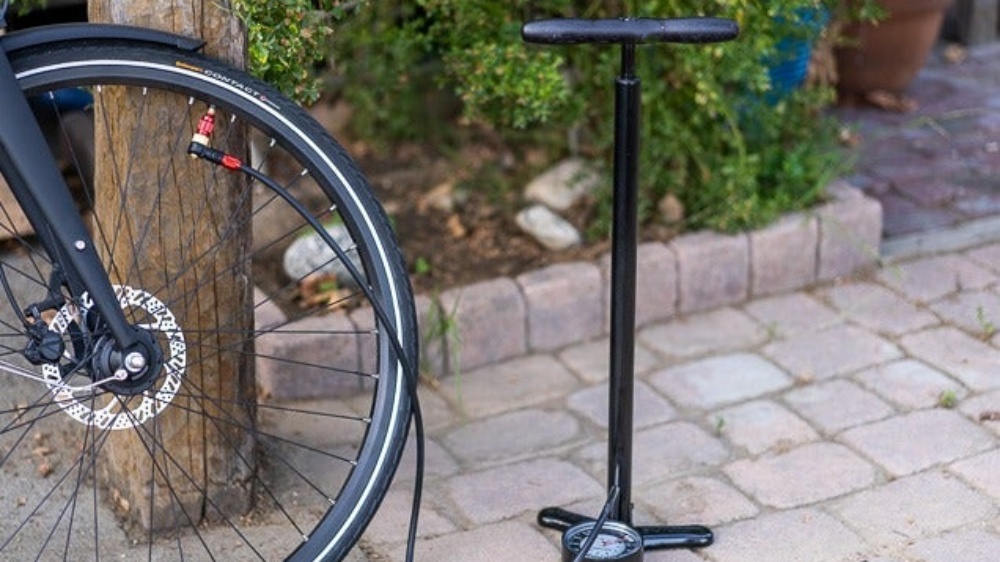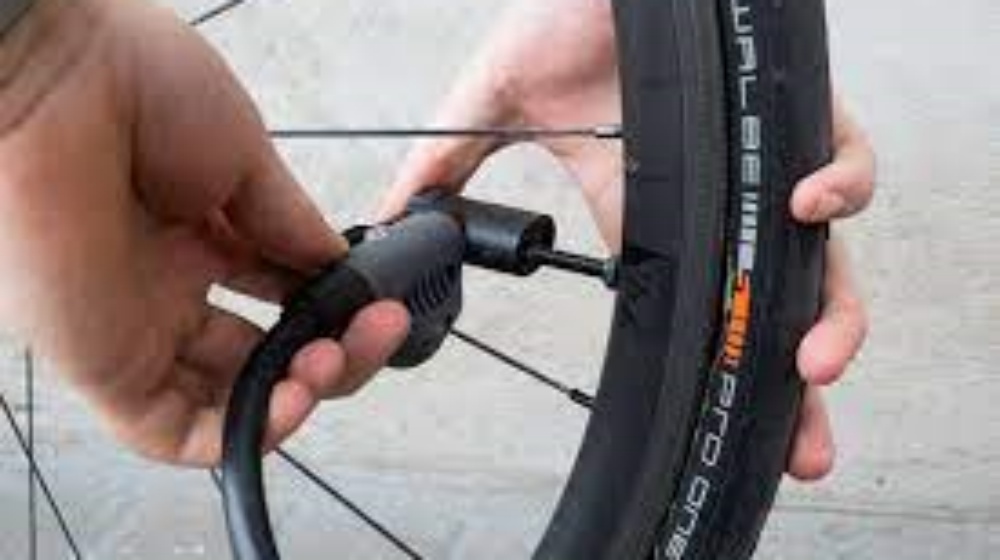Bike Tire Pump – Everything You Should Know
A bike is more than just a means of transport, it’s a representation of freedom and adventure. And to keep your bike in tip-top shape, the air pressure in your tire is a crucial factor. In this article, we’ll delve into everything about bike tyre pumps, from how to use them to tips on choosing one to help you create the perfect riding experience.
Why you need to pump up your bike tyres
Inflation is so important to the fast fun of cycling that you need to pump up your bike regularly, an important fact that is generally unknown to new cyclists.
As a cyclist, you must invest some money in a track pump as it is very useful. It is! You can also use a mini bike tire pump but it is very time consuming and not everyone likes to use it.
The next thing you might think of is how often a bike tyre should limp. So it depends on how much you have to ride your bike and how much you are going to ride your bike at some time in the future. The more you ride, the more pumping you need to do.

The expert’s advice on regularity is as follows:
According to experts, the most common rule for pumping up bike tyres is every fortnight, preferably using a venue bike tyre pump. Track pumps are preferred as they have a pressure gauge that you can use to check the running pressure when pumping. Worried about not having a track pump? Don’t get frustrated, all you need to do now is to visit a bike shop in your area or far away where you can buy track pumps that are stored outside the shop and you can use them and that too for free.
It is important to pump up the tyres of your bike, not only to make them go fast and smooth, but also to prevent punctures. Another way of preventing or checking for punctures is to give your bike’s tyres a quick squeeze when jumping, this usually works well and also avoids sudden rubbing.
If you are trying a pump for the first time, you will be better off knowing the PSI required or visiting a bike shop that has track pumps placed outside. Generally, most shops will have the required PSI units for the pump written on the side wall of the shop to help newbies like you and prevent them from any mishaps.
So the next time you pump your tyres at the correct pressure, don’t forget to squeeze them. Initially, you may experience some looseness or lack of looseness, but slowly you will get used to it. After many pumps you will not need any help to check if you need to pump and how much pressure you need, after all practice makes perfect!
bike tire pump and their types
1. Track pumps
These are also known as floor pumps and make tyre inflation easy and quick. It’s a bit heavy, but great to have around the house to do your work.
2. Mini pumps
Mini pumps are suitable for regular cyclists and are easy to carry around. So if you need a portable pump, buy a mini pump, but it’s not as effective as a tracked pump because it takes more time to pump and is a bit complicated to use.
3. CO2 inflators
They are usually lighter than mini pumps and are preferred by racers. Not only are these great to use, but they are also faster.
So, do you have any ideas on what you would purchase in the future?
How to inflate bike tyres
So, having learned all you need to know about pumps and why you should pump up your bike tyres, let’s start discussing how to pump up your bike tyres. The steps are as follows:
1. Choose the right bicycle tyre pump
Types of bicycle tyre valves Schrader and Presta
There are two types of valves available on bike tyres, one is Presta valve and the other is Schrader valve. Make sure your bike type has either valve.
After checking the valve type, check that your bike pump fits and if it doesn’t, change the pump accordingly. Generally, pumps are compatible with Schrader-type valves, so if you have a Presta valve and don’t have a suitable bicycle pump, you may need an additional adapter.
2. Know the required tyre pressure
Apply the proper pressure or the tear may rupture. If you have no knowledge of PSI then follow the advice above and either go to a bike shop or ask an adult.
As a general rule, road bikes need 80-130 PSI, while hybrid tyres need 40-70 PSI and mountain bikes accordingly need about 25-35 PSI.
3. Open the valve cover
Remove the cap from the valve and store it carefully. In French valves, an extra lock is not usually provided, so you will need to remove it first, whereas in Schrader there is no such thing.

4. Place the valve above the pump
If you are a daily rider, carry a hand pump with you every time. For suction, use the floor pump if you are comfortable at home or the hand pump if you are on the road. The pump has two nozzles that fit over two types of valves, so it’s easy to choose the right nozzle and just place it over the valve and push it in.
5. Read the instructions
Read the instructions on the pump and use them accordingly. Bicycle pumps are easy to use and don’t usually require any specialist knowledge, but if you feel up to it ask for help.
6. Inflate the tyres
Now start pumping and inflating your tyres as needed, then simply remove the nozzle from the valve. Don’t forget to double check the pressure gauge to make sure the inflation pressure is correct.
7. Tackling over-inflation
If the tyre is over-inflated, try to balance the PSI by pulling some air out of the inner tube. if you have an american nozzle valve, put your finger on the valve and press it down until it is balanced. In a Presta valve, unlock but lock the valve and pressurise it to expel the air. If you want to repair your tyres just in case, find out more.
8. Close the valve
Last but not least, simply close the valve. For Schrade, the valve secures the plastic cap to the valve, while for Presta valves, tighten the nut lock and leave the plastic cap on the valve.
Conclusion
Pumping up a bike tyre is a simple task, but it should not be taken lightly. You must have a good understanding of PSI, pumps and bike types to be able to pump effectively, otherwise it will be a huge waste of time for you and may worsen the condition of your tyres. So don’t rush into pumping up your bike tyres, have a little patience, build up your knowledge and go!
Have any questions? Drop us a line below! Let our well-designed Electric Bike take you on a journey to explore nature and unleash your passion for unlimited adventure!
 shuangye outdoor products
shuangye outdoor products
